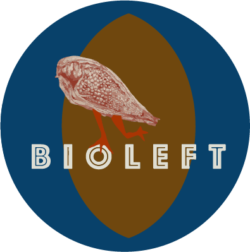From September 21 to 23, Bioleft participated as co-organizer in the First Encounter of Exchange of Native and Creole Seeds, in San Pedro de Colalao, Tucumán, together with the Organization of Indigenous Nations and Peoples of Argentina (ONPIA), the Federation of Nuclear Organizations of Family Farming (FONAF) and El Estribo Cooperative.
There were participants from Neuquén, Mendoza, San Juan, Catamarca, Tucumán, Córdoba, Salta, Jujuy, Tucumán, Buenos Aires and Santiago del Estero provinces. Producers, representatives of family farming organizations and native peoples, professionals from universities and CENIT Foundation, cooperatives and activists met to protect the heritage and genetic value of seeds, and ensure their circulation.
All the small and medium producers were concerned about the progress of the large seed monopolies and the loss of biodiversity. The threat of the Seed Law being modified in a more restrictive sense, allowing the patenting of seeds without transgenic modifications, was also mentioned. In this context, the Bioleft proposal was presented: a network to guarantee the continuous circulation of seeds and promote collaborative improvement, through a legal framework and a digital platform. In the words of one of the participants, Bioleft is “a club that is just beginning to have partners”: within that club, the seed circulates to get improved.
Finally, the seed transfer ceremony was held under the terms of Bioleft, after registration of the farmers who received them in the system. Five varieties of corn were delivered by the breeder Claudio Demo, from Río Cuarto, Córdoba: golden alpense, red chucul, white chucul, quarentín and sacharatum. There were also some bags of Ubuntu, the forage melilotus albus improved by Gustavo Schrauf and the team of Genetics of the Faculty of Agronomy of the University of Buenos Aires, the first Bioleft seed . Arriving from Neuquén, the Mapuche representative Antonio Vargas distributed seeds of pine nuts, and Héctor Molina, one of the local hosts, requested that the guayacán seed that he delivered be multiplied. Those who take the seeds within the framework of Bioleft commit themselves to reproduce them without ever restricting the circulation of the genetic material.
This is the start of a network of associated producers that function as guardians of the seeds, as they ensure their conservation and multiplication. As they sow the material received, they will also record the results obtained in each region. The systematization of these data, and the knowledge they imply, will be the first step towards a system of distributed collaborative improvement, which allows open innovation on an equal scale -but greater- than that of large companies.
